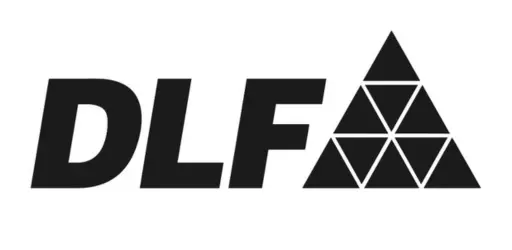Real Estate Investment vs. Stock Market in 2025
30 Aug 2025
By Shailesh Arya
Investing is no longer just about saving money—it is about building wealth, securing financial stability, and achieving long-term goals. In today’s fast-paced economy, making the right investment decision can determine whether your money grows steadily or faces unpredictable risks. As we enter 2025, the debate around real estate investment vs the stock market in 2025 has become more relevant than ever.
The global economy is at a turning point, with inflation, changing interest rates, and government regulations influencing markets worldwide. While investing in real estate in 2025 offers stability and tangible asset appreciation, the stock market investment in 2025 promises liquidity and quick returns. So, which one is the smarter choice for wealth creation in the coming years? Let’s dive deep.
Market Overview 2025
Real Estate Market 2025

The real estate sector in India and globally is witnessing steady growth in 2025, fuelled by:
Urban Expansion: Rapid migration to metro cities, tier-2, and tier-3 cities has increased demand for residential and commercial properties.
Infrastructure Development: Government projects like smart cities, metro expansions, and expressways are enhancing property values.
RERA Regulations: The Real Estate Regulatory Authority (RERA) has boosted investor confidence by ensuring transparency, timely delivery, and accountability.
Rental Yields: With growing rental demand in urban areas, investors are enjoying attractive rental income along with capital appreciation.
Property Appreciation: Strategic locations near business hubs, airports, and highways continue to witness consistent value growth.
Stock Market 2025

The equity market in 2025 is vibrant yet volatile. Factors shaping the market include:
Volatility: Stock indices are influenced by geopolitical tensions, inflation, and central bank decisions.
Global Economic Factors: The US and European economies, coupled with China’s trade policies, play a major role in shaping market direction.
Interest Rates: Central banks across the world are balancing inflation control with growth, directly impacting stock valuations.
Technology-driven Growth: The rise of AI, fintech, renewable energy, and digital companies is creating high-growth opportunities.
Retail Participation: With online trading apps and simplified investment platforms, more young investors are entering the stock market.
Verdict: Real estate is showing stable long-term growth, while the stock market is offering high but risky returns.
Advantages of Real Estate Investment
Real estate has always been considered a cornerstone of wealth creation. Here’s why:
Stability and Security
- Unlike the stock market, real estate is less volatile. Prices may fluctuate but generally follow an upward trend over time.
Tangible Asset Value
- Real estate is a physical asset you can see and use. This makes it a safer investment for conservative investors who value security.
Rental Income
- Rental yields from residential and commercial spaces provide regular passive income, which can be reinvested or used to cover EMIs.
Tax Benefits
- Investors can claim tax deductions on home loan interest, property tax, and depreciation, reducing overall liability.
Long-term Appreciation
- Property in developing locations appreciates significantly over a 10–15 year horizon, making it one of the best tools for long-term wealth creation.
Risks in Both Investments
Every investment comes with risks. Understanding them is crucial.
Real Estate Risks
Regulatory Delays: Project delays due to approval issues can lock up investor funds.
Liquidity Issues: Selling a property quickly at market value is often difficult.
High Transaction Costs: Registration fees, stamp duty, and brokerage charges increase costs.
Maintenance Costs: Repairs, property tax, and upkeep can eat into rental income.
Stock Market Risks
Volatility: Stock prices can swing drastically within minutes, leading to unpredictable outcomes.
Market Crashes: Global events, recessions, or economic crises can erode wealth overnight.
Global Dependency: Stock performance is tied to international economic conditions, often beyond an investor’s control.
Behavioral Risks: Emotional decisions (panic selling, overbuying) increase losses.
Comparative Analysis
Here’s a quick side-by-side comparison:
Real Estate vs Stock Market 2025 Comparison
| Parameter | Real Estate Investment 2025 | Stock Market Investment 2025 |
|---|---|---|
| Risk | Moderate to Low | High |
| Returns | Steady, long-term gains | High short-term potential |
| Liquidity | Low | Very High |
| Time Horizon | Long-term (5–15 years) | Short to Medium (1–5 years) |
| Inflation Hedge | Strong | Moderate |
| Diversification | Limited (location-specific) | Wide (industries & geographies) |
| Tax Benefits | Strong (home loan, depreciation) | Limited (depends on gains & laws) |
Investor Profiles
Choosing between real estate vs stocks in 2025 depends on your investment style:
- Conservative Investors: Prefer real estate for stability, security, and passive income.
- Aggressive Investors: Choose the stock market for short-term gains, liquidity, and high-growth opportunities.
- Long-term Investors: Real estate suits those planning wealth creation over 10–15 years.
- Short-term Investors: Stocks are ideal for those seeking quick returns within 1–3 years.
- Balanced Investors: A mix of both ensures portfolio diversification—real estate as a safe hedge and stocks for rapid growth.
Conclusion
The truth is, both asset classes have their strengths and weaknesses. Real estate offers stability, appreciation, and rental income, making it a strong long-term wealth creation tool. The stock market provides liquidity, diversification, and quick returns, making it ideal for dynamic investors.
In 2025, the best investment strategy is not choosing one over the other but combining both. A balanced portfolio that includes real estate for security and stocks for growth ensures resilience against market uncertainties while maximizing wealth.
If your goal is long-term wealth creation, diversification is the smartest move in 2025.






































































